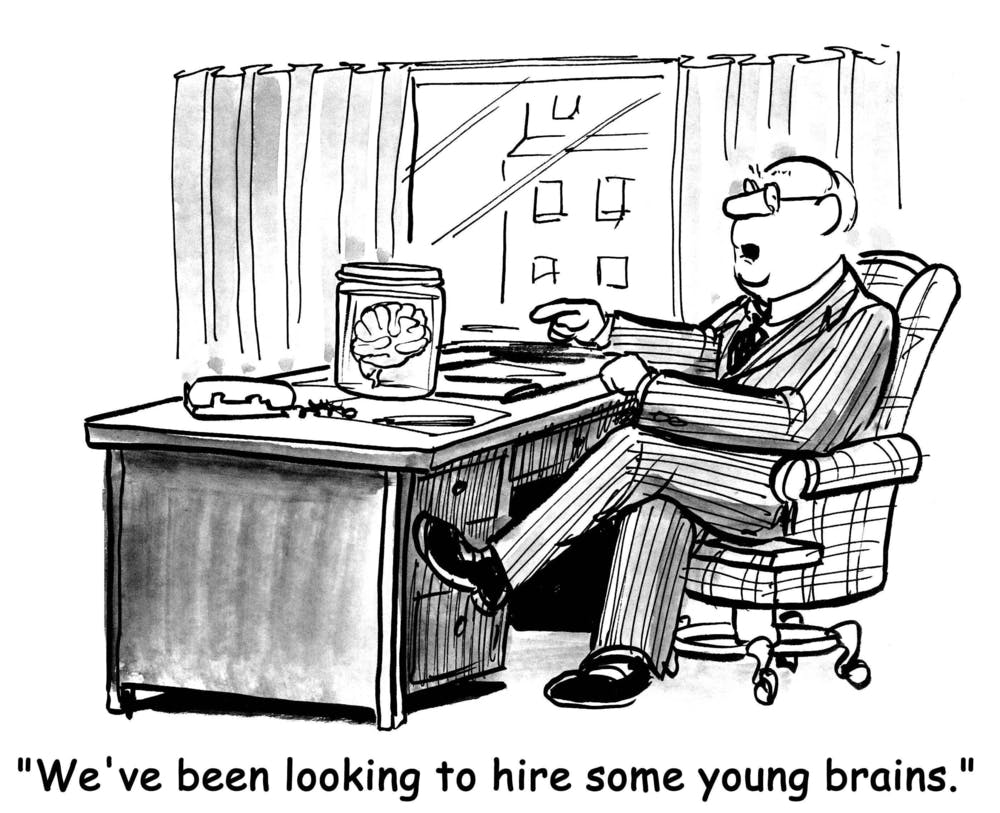You’ve just completed your interviews, and now it’s time to decide. Which candidate do you hire as the new sourcer for your team? I have gone back and forth on this debate, teetering between choosing technology expertise and industry experience, or choosing good old fashioned passion and drive (assuming you can’t have both). These days, I lean more toward character over skill.
The reality is, just about any skill can be taught. That’s what makes it a skill and not a talent we magically and effortlessly acquire. By definition; “skill is a learned ability. It is acquired or developed after you put in a lot of time and hard work.” But more important, in my opinion, is the product of nature and nurture: who you are at your core as a person and the standards you hold yourself to and invaluable qualities like integrity, honesty, commitment, and respectfulness.
There was always one philosophy I could never argue with in all my years in staffing: hire character and teach competence (skill). The main reason behind this, or so I believed at the time, was that I was hiring most people right out of college. No one had recruiting experience; I had to teach them how to recruit. There was a natural attrition of those who didn’t have the passion and desire to learn the skills and keep up in a production-based environment. When I moved into the corporate world, I was able to consider much more experienced hires with industry experience and all the fancy tools I continue to learn about and love from SourceCon and blogs. In the corporate setting, I started looking for who brought the specific tools, existing skill set, industry knowledge, and who had already been successful working for a similar company.
Not anymore.
There will probably never be a college degree in recruiting or talent acquisition, even though our job is directly tied to the piece of business with the most critical impacts on function and success of any organization, large or small: its people. So what separates the good recruiter from the ones this Google search is talking about?
***Thanks, Maisha, for the fantastic graphic last Fall!***

It’s the hard-to-measure intangibles that have a large impact on success in sourcing. The intangible qualities candidates have that give you a feeling in your gut that this person is special and requires you to trust your instinct and give him or her a chance to, hopefully, prove you right. I look for some of these indicators:
- Pride in work quality, not just their results, but how they get there.
- A desire to learn and take control of one’s self-development.
- A curiosity to understand the big picture, their role in it, and what it means.
- An openness to try new things and take risks.
- A willingness to make mistakes, learn from them, and try again.
I ask myself different questions about their “qualifications” instead of just checking the box that they have experience with certain tools and skills sets. In correlation with the points above:
- How well written and thought-out was their thank you note? Cookie cutter or lasting impression?
- Are they a self-starter? What was the last continued education opportunity they took advantage of, for example?
- What kind of questions did they ask?
- How innovative have they been in the past? What’s the last process, program, etc. in which they influenced some change?
- What types of obstacles have they overcome?
If you can’t answer these questions, adjust how you interview.
Sourcing and recruiting have evolved a lot over the last five to ten years and will continue to. Artificial intelligence, machine learning, automation, they’re all coming to our space and faster than most of us probably understand, or are prepared for. But one thing that cannot be automated is engagement. Solid candidate engagement. The kind that sways a person to take your company’s offer even though it’s less money or isn’t her ideal work location.
Influencing those stand-out hires to join the company doesn’t happen because of a template, a new tool, or an algorithm. It comes from your sourcer’s level of engagement and who the sourcer is at his or her core. Does the sourcer build rapport and trust with candidates? Is she accessible and an active listener? Does she care? All of these qualities come together to make an excellent brand ambassador, and they’ll represent well to candidates who want to work for a company that cares as much as they do.
Invest in finding sourcers whose character, engagement level, and other qualities are on-point. Focus less on checking the exact skillset and experience boxes, and trust that you have the “skills” to teach the sourcer how to do the rest. I believe having sourcers with invaluable character, even if they still have some specific skills to hone – attracts candidates who have the right kind of character your organization needs, too.
